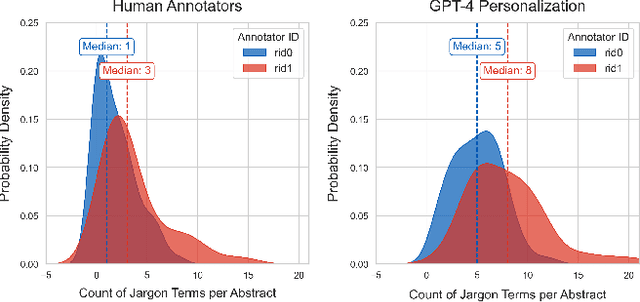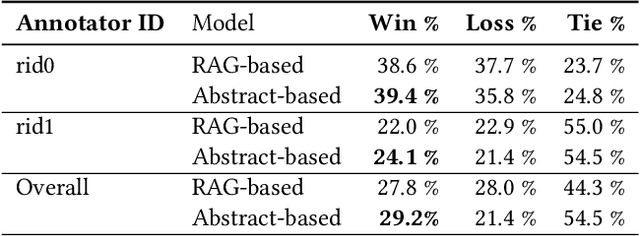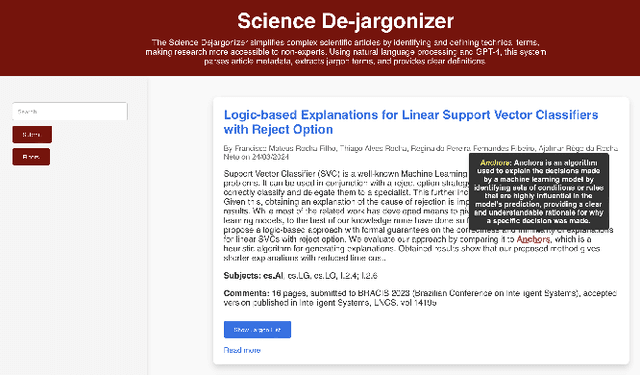Sachita Nishal
De-jargonizing Science for Journalists with GPT-4: A Pilot Study
Oct 15, 2024



Abstract:This study offers an initial evaluation of a human-in-the-loop system leveraging GPT-4 (a large language model or LLM), and Retrieval-Augmented Generation (RAG) to identify and define jargon terms in scientific abstracts, based on readers' self-reported knowledge. The system achieves fairly high recall in identifying jargon and preserves relative differences in readers' jargon identification, suggesting personalization as a feasible use-case for LLMs to support sense-making of complex information. Surprisingly, using only abstracts for context to generate definitions yields slightly more accurate and higher quality definitions than using RAG-based context from the fulltext of an article. The findings highlight the potential of generative AI for assisting science reporters, and can inform future work on developing tools to simplify dense documents.
Understanding Practices around Computational News Discovery Tools in the Domain of Science Journalism
Nov 28, 2023Abstract:Science and technology journalists today face challenges in finding newsworthy leads due to increased workloads, reduced resources, and expanding scientific publishing ecosystems. Given this context, we explore computational methods to aid these journalists' news discovery in terms of time-efficiency and agency. In particular, we prototyped three computational information subsidies into an interactive tool that we used as a probe to better understand how such a tool may offer utility or more broadly shape the practices of professional science journalists. Our findings highlight central considerations around science journalists' agency, context, and responsibilities that such tools can influence and could account for in design. Based on this, we suggest design opportunities for greater and longer-term user agency; incorporating contextual, personal and collaborative notions of newsworthiness; and leveraging flexible interfaces and generative models. Overall, our findings contribute a richer view of the sociotechnical system around computational news discovery tools, and suggest ways to improve such tools to better support the practices of science journalists.
 Add to Chrome
Add to Chrome Add to Firefox
Add to Firefox Add to Edge
Add to Edge